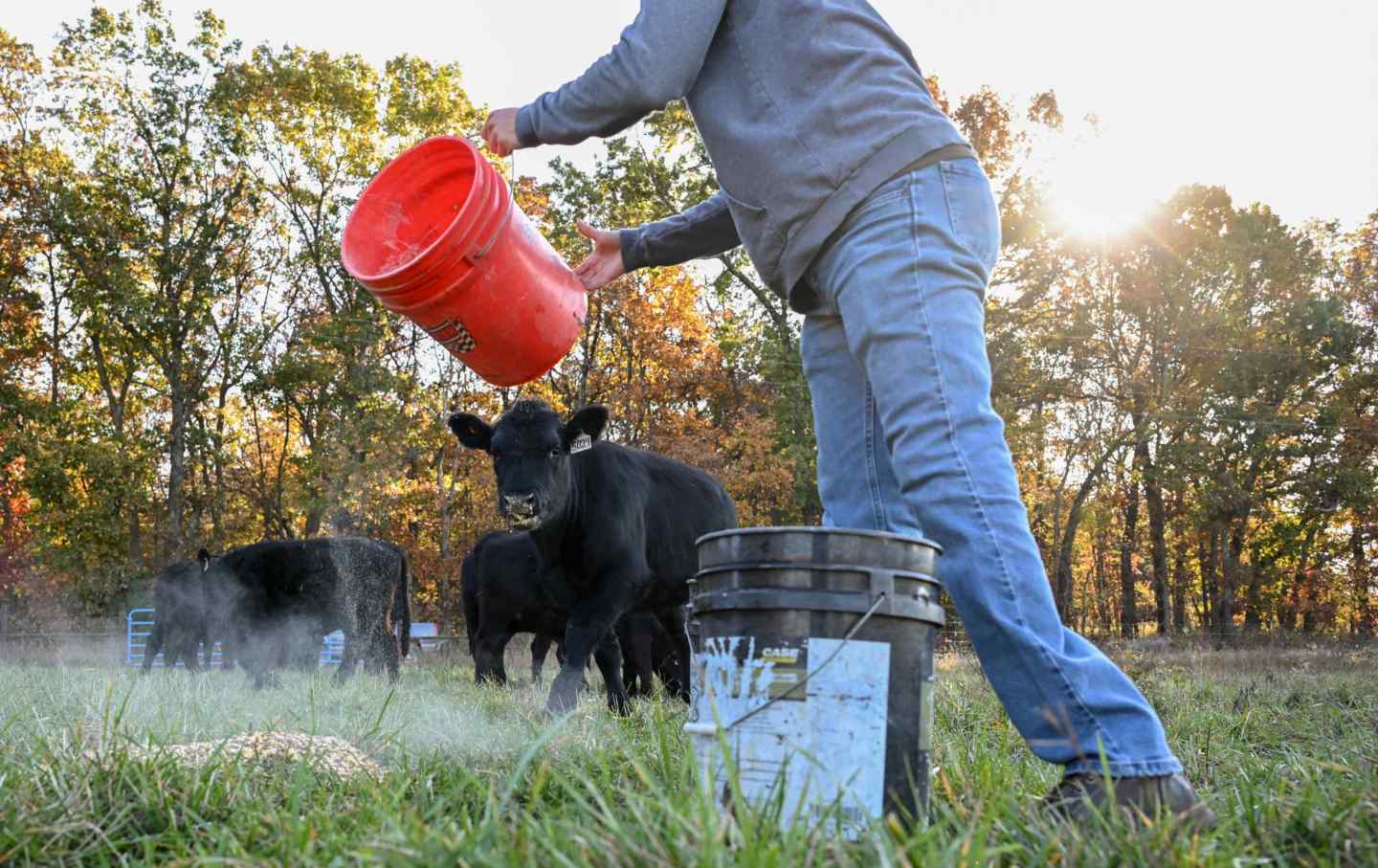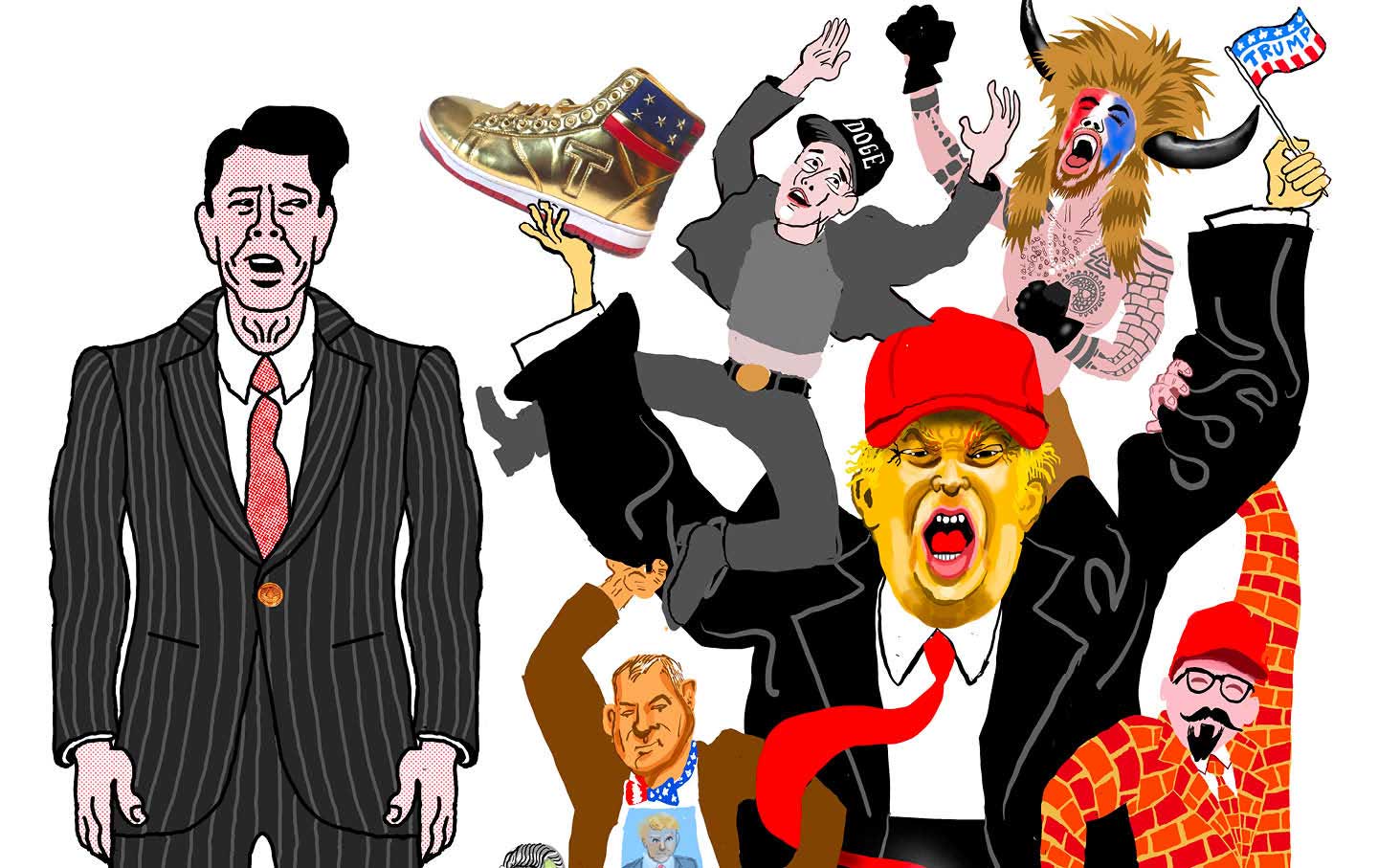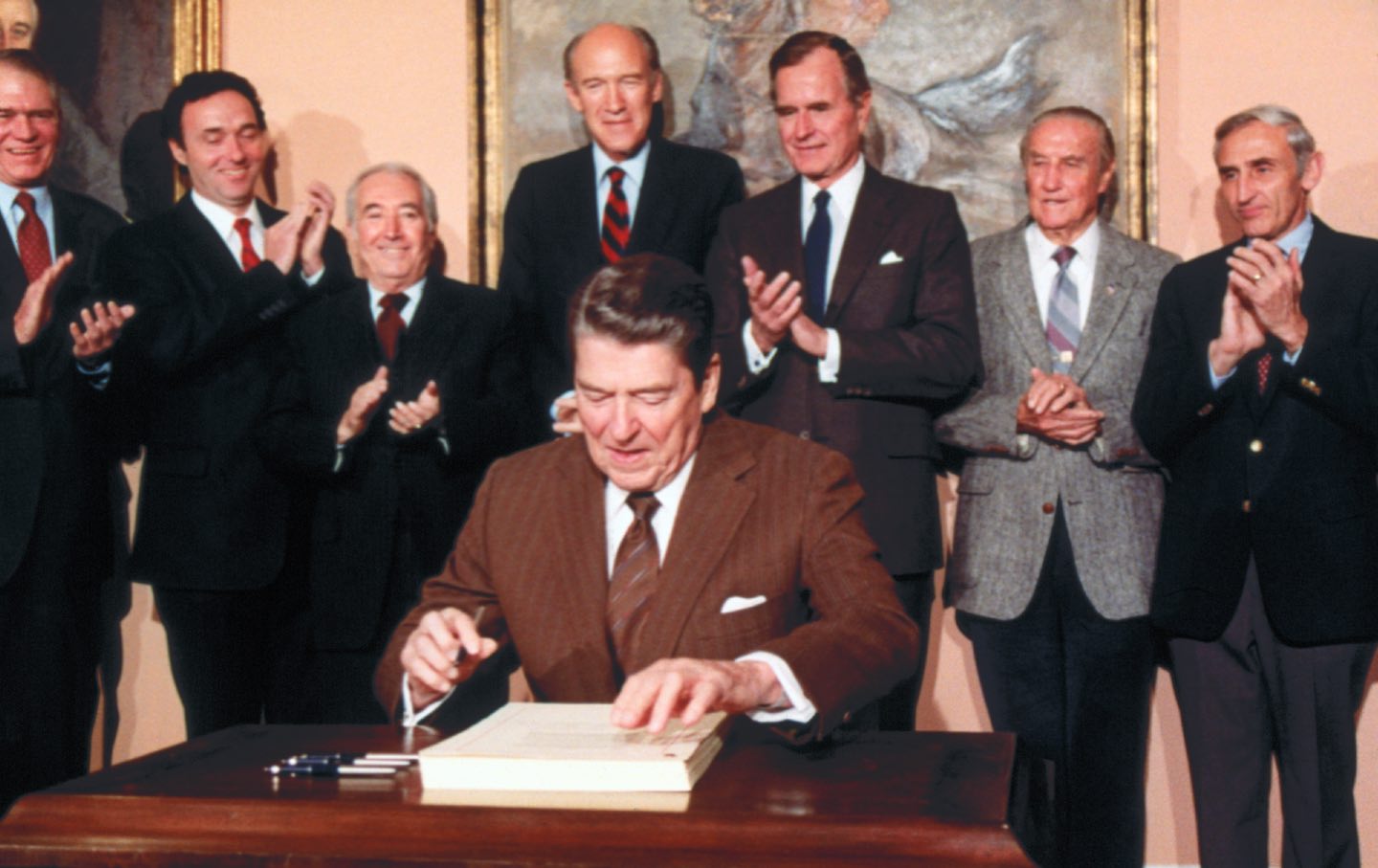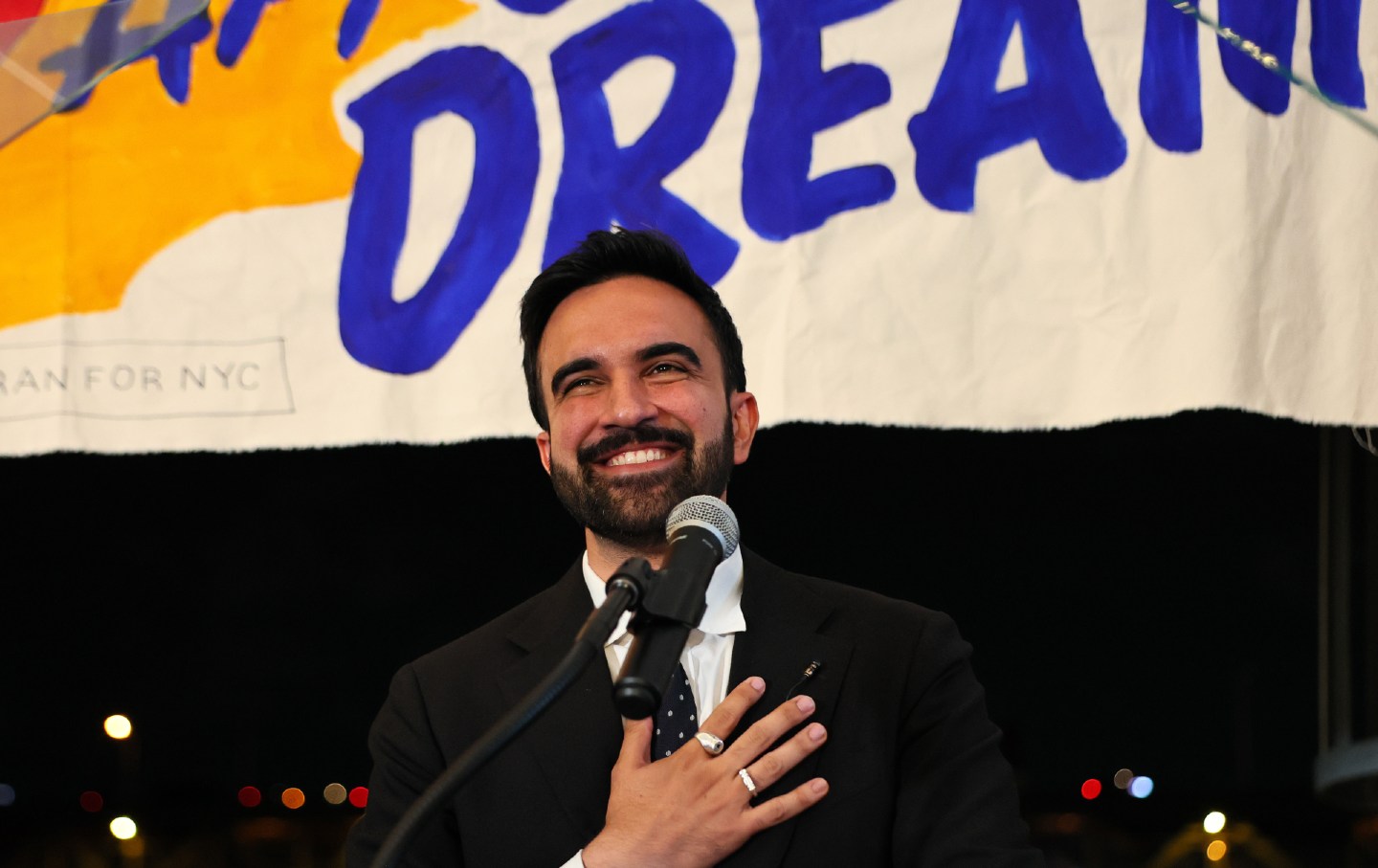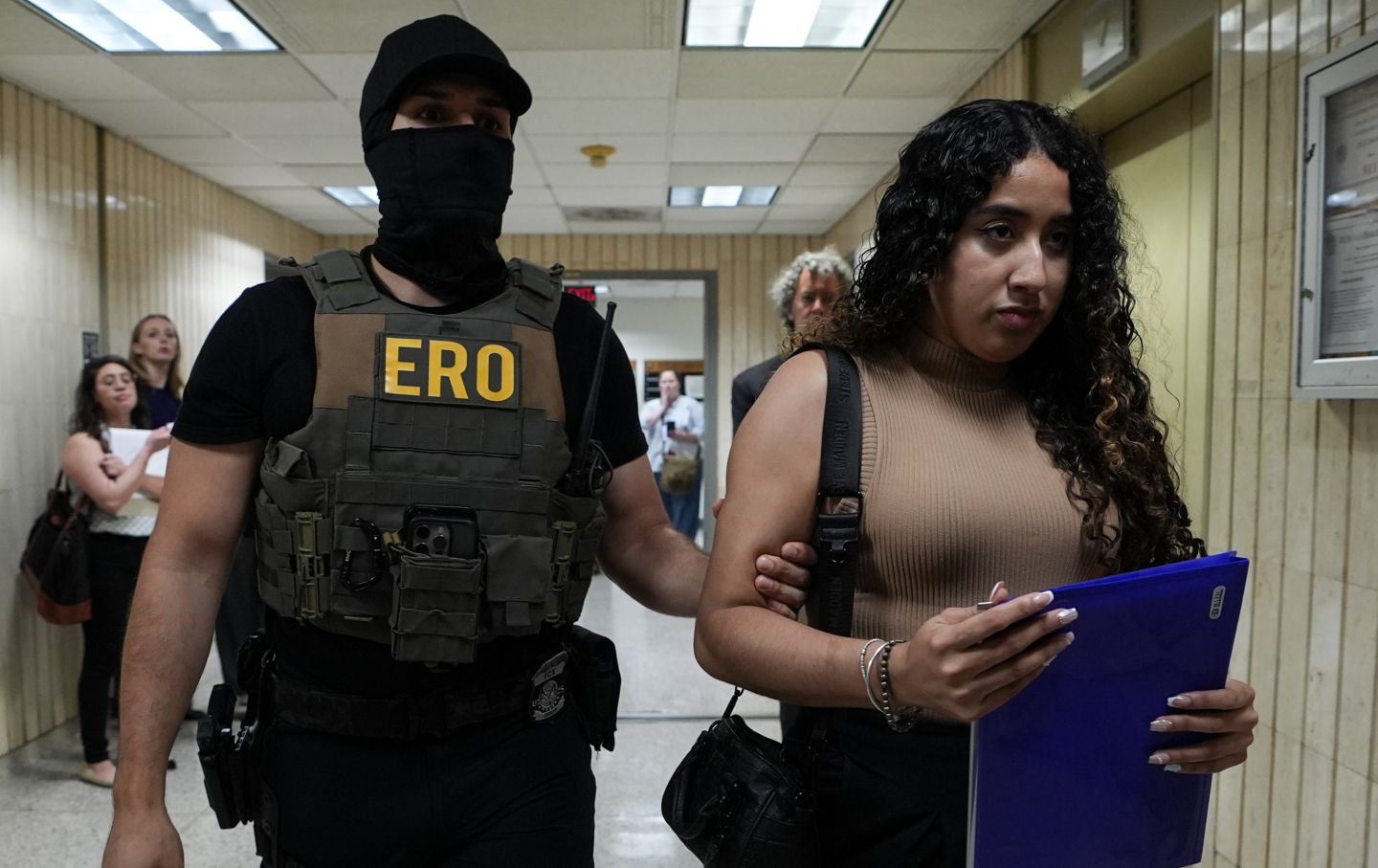Kamala Harris and the Cool Dad Next Door
Minnesota Governor Tim Walz rounds out the Democratic ticket. Can he keep up his affable persona as tensions rise in the Middle East?
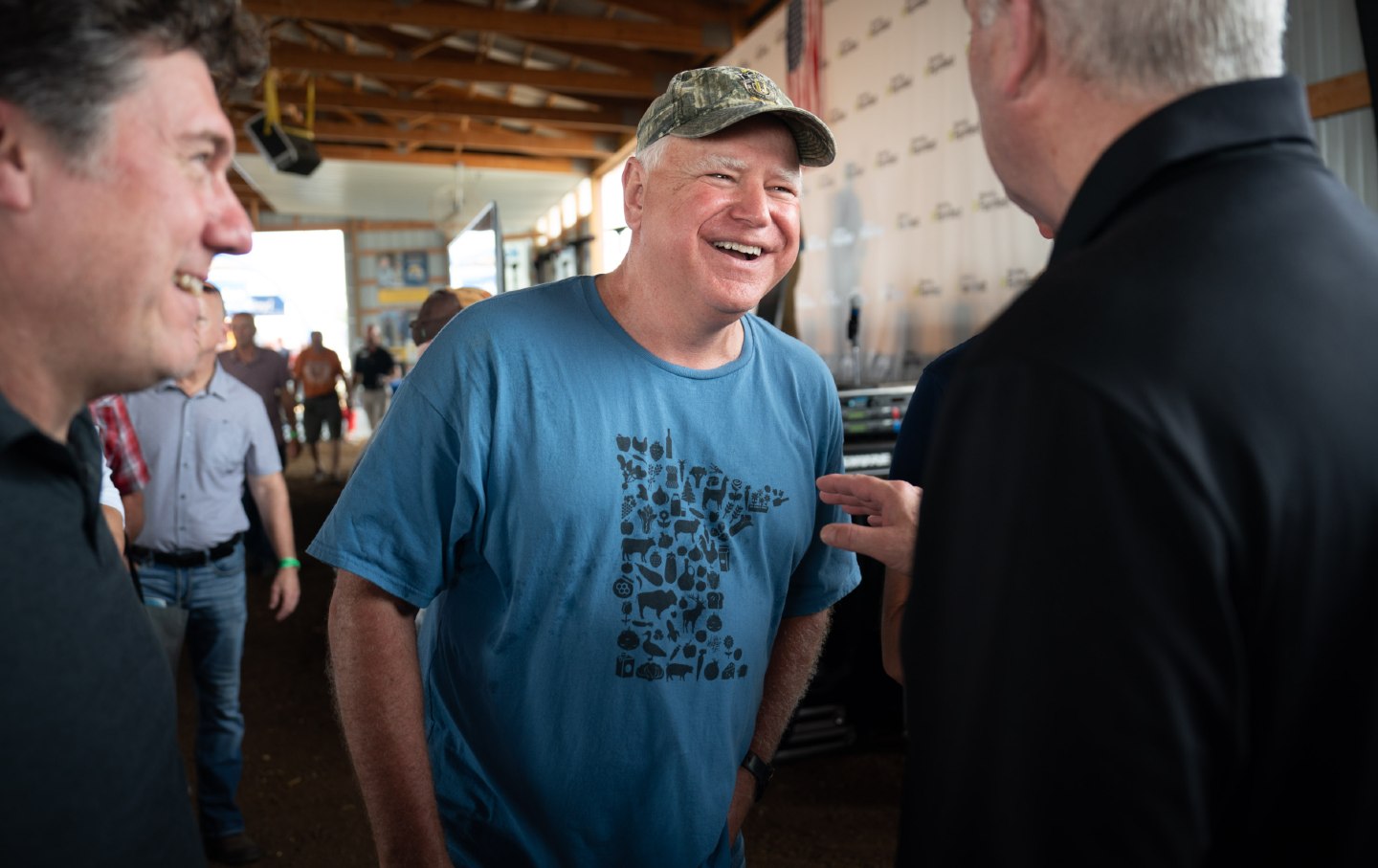
Minnesota Governor Tim Walz talked with Representative Tom Emmer at the Farmfest agricultural forum on August 2, 2023, in Morgan, Minnesota.
( Glen Stubbe / Star Tribune via Getty Images)
Minneapolis—On Friday, Kamala Harris officially won enough delegates to be the Democratic Party’s presidential nominee. In July, her campaign raised $310 million—more than double Trump’s—buoyed by a mix of memes and pragmatism.
On July 31, though, Hamas leader Ismail Haniyeh was assassinated in Tehran. The killing, like that of Hezbollah commander Fouad Shukur in Beirut the day prior, was blamed on Israel. By the time Harris announced that Minnesota Governor Tim Walz, who started the recent trend of calling Trump “weird,” would be her running mate Tuesday morning, Hezbollah had retaliated against Israel via a drone swarm.
The response to Walz and his dad-next-door image has been overwhelmingly positive, with even Barack Obama heaping praise. If and when things escalate further in the Middle East, though, the honeymoon period for Harris and Walz could come crashing to a halt.
Indeed, the selection of Walz over Pennsylvania Governor Josh Shapiro highlights an election paradox: For progressives who couldn’t in good conscience vote for Genocide Joe, the war in Gaza remains paramount. Four years ago, the top issue for those furthest on the left was mass incarceration and police violence—hence the since-forgotten disdain for Harris’s prosecutorial background.
Shapiro, who governs a swing state, seemed a natural choice for VP, but he said things—like comparing college students who set up pro-Palestine encampments to the KKK—that would alienate the progressives Harris seems to have won over by simply not being Biden.
The irony is that Harris and Walz are vocal about everything but Palestine. While Trump and friends are already trying to paint Walz as a far-left radical, the former geography teacher and high school football coach is busy laying the foundation for a rebrand of small-town values as liberal ones—and has the track record to prove it, from free school lunch to a generous childhood tax credit.
It’s almost as if the Internet thinks Walz fell out of a coconut tree—as if Minnesota has never been on the national or international stage. But Minnesota was the epicenter of the largest protest movement in American history following the murder of George Floyd in 2020, and Walz oversaw the state’s largest-ever civil police deployment in response. Walz distanced himself from calls to defund the police, though he did sign into law the Minnesota Police Accountability Act, which banned warrior-style training and choke holds, among other things.
In a press conference during what’s been dubbed the Minneapolis Uprising, Walz claimed that the outpouring of people protesting racialized police violence had brought more destruction and terror to Minnesota than anyone else in state history—more than “the wars we fought to protect our nation, the war on terrorism and all that”—so as to justify tear gas, curfews, kettling, and mass arrests against them.
That version of Governor Walz is all but forgotten today. A peculiar collective amnesia seems to be taking place, with “Minnesota nice” going from being considered a euphemism for racism in 2020 to a stand-in for policies that comprise a social safety net today.
From a foreign policy perspective, Walz does sport some pacifist tendencies. A former Army sergeant, Walz first ran for Congress on an anti-war platform and played a leading role in urging President Obama to not go to war in Syria. The question is: Which version of Walz will we get in the months ahead?
Considering Iran believes it has a duty to avenge Haniyeh’s death—and plans to do so “whatever the consequences”—it may only be a matter of time before the cool dad next door dons a more authoritarian persona once again.

